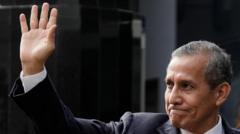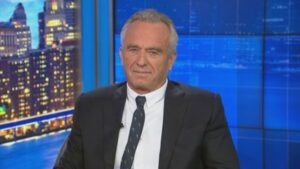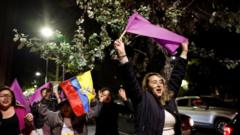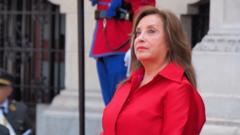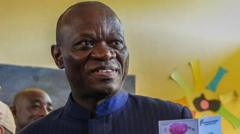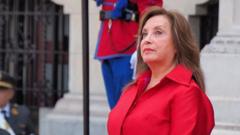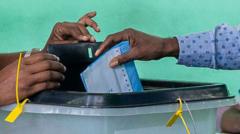With Gen Brice Clotaire Oligui Nguema aiming to transition from coup leader to president, Gabon grapples with its political future.
Gabon Faces Uncertain Future as Coup Leader Oligui Nguema Seeks Presidency
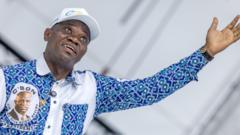
Gabon Faces Uncertain Future as Coup Leader Oligui Nguema Seeks Presidency
Gabonese voters brace for pivotal presidential election amid lingering doubts about the former regime's influence.
In the capital Libreville, the atmosphere is charged as citizens gear up to vote in a significant presidential election. At the center of it is Gen Brice Clotaire Oligui Nguema, the coup leader who overthrew long-time president Ali Bongo in August 2023. Oligui Nguema, who previously commanded the republican guard, has transformed the political landscape, making promises that resonate with the disillusioned youth of Gabon.
Landry Obame-Mezui, a 40-year-old taxi driver, exemplifies the impact of Oligui Nguema's leadership. Driving his new "Taxi Gab+" vehicle, which he acquired through a hire purchase program established by the transitional government, he feels optimistic about his prospects. "Before August 30, things weren't going as I wished, but today I have something stable on which I can set objectives and go far," he shared, indicating his support for the transitional leader. His sentiments echo the slogans dominating the city, promising a fresh start under Oligui Nguema’s governance.
Yet, as Gabon heads to the polls, skepticism looms. Critics point out that many candidates, including Oligui Nguema himself, previously served in the Bongo administration. Voter Shonnys Akoulatele voiced her concerns, stating, "We're merely seeing a monotony of the previous regime." This undercurrent of doubt extends to the political analysts who question the authenticity of the promised change, arguing that meaningful political transformation often requires new leadership.
Despite promises to combat corruption—illustrated by the arrests of high-profile figures from the former regime—some Gabonese citizens feel that the transition has not delivered on its considerable potential. Local resident Jacques Okoumba acknowledged that while he had initially backed the new government, hesitance grew as he realized that not all promises were fulfilled.
As the election draws near, many are viewing it as an opportunity to sever ties with the Bongo legacy, hoping for the emergence of a new political era. With no members of the Bongo family or the ruling PDG party on the ballot, this election may represent a pivotal moment for Gabon. However, amendments to the electoral laws are seen by some as advantageous only to Oligui Nguema, sparking debate over the fairness of the election process amidst claims of inadequate competition.
As Gabonese citizens prepare to cast their ballots, the outcome remains uncertain, leaving the country at a crossroads between the shadows of its past and the hope for genuine democratic reform.
Landry Obame-Mezui, a 40-year-old taxi driver, exemplifies the impact of Oligui Nguema's leadership. Driving his new "Taxi Gab+" vehicle, which he acquired through a hire purchase program established by the transitional government, he feels optimistic about his prospects. "Before August 30, things weren't going as I wished, but today I have something stable on which I can set objectives and go far," he shared, indicating his support for the transitional leader. His sentiments echo the slogans dominating the city, promising a fresh start under Oligui Nguema’s governance.
Yet, as Gabon heads to the polls, skepticism looms. Critics point out that many candidates, including Oligui Nguema himself, previously served in the Bongo administration. Voter Shonnys Akoulatele voiced her concerns, stating, "We're merely seeing a monotony of the previous regime." This undercurrent of doubt extends to the political analysts who question the authenticity of the promised change, arguing that meaningful political transformation often requires new leadership.
Despite promises to combat corruption—illustrated by the arrests of high-profile figures from the former regime—some Gabonese citizens feel that the transition has not delivered on its considerable potential. Local resident Jacques Okoumba acknowledged that while he had initially backed the new government, hesitance grew as he realized that not all promises were fulfilled.
As the election draws near, many are viewing it as an opportunity to sever ties with the Bongo legacy, hoping for the emergence of a new political era. With no members of the Bongo family or the ruling PDG party on the ballot, this election may represent a pivotal moment for Gabon. However, amendments to the electoral laws are seen by some as advantageous only to Oligui Nguema, sparking debate over the fairness of the election process amidst claims of inadequate competition.
As Gabonese citizens prepare to cast their ballots, the outcome remains uncertain, leaving the country at a crossroads between the shadows of its past and the hope for genuine democratic reform.







